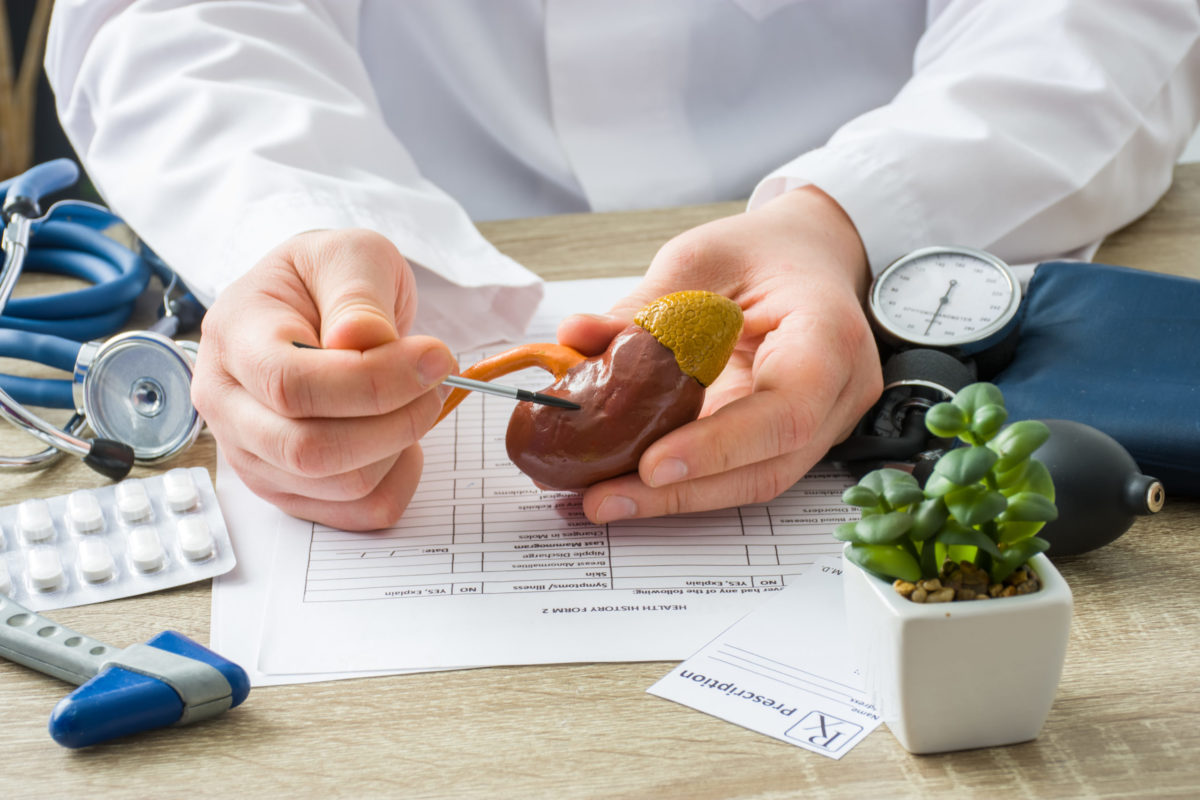One in 8 Americans has kidney disease, and more than 1,000 Tennesseeans die from it each year. Still, most of us don’t know much about it until it affects our lives.
“Kidney disease generally has such a gradual progression that some people have it for years without knowing,” says Dr. Ian Bushell, a family medicine physician and medical director for BlueCross BlueShield of Tennessee. “The good news is that if you catch it early, you can manage it easily.”
Often, that comes down to having a good relationship with your primary care provider (PCP). Here’s what you need to know about kidney disease.
How do healthy kidneys function?
Along with the liver, kidneys are one of the most important filters for the body.
Kidneys help:
- Regulate electrolytes, sodium and potassium levels
- Control excretions
- Maintain a balanced water level
“In short, kidneys get rid of the bad and keep the good,” says Dr. Bushell.
What is kidney disease?
Kidney disease happens when something interferes with the filtering ability of the kidneys.
- Acute kidney disease (or acute kidney failure) develops suddenly. The kidneys stop working, usually over the course of a few days, and the condition lasts up to 3 months.
- Chronic kidney disease happens when the kidneys have been damaged to the point that they can no longer filter blood the way they should. Untreated, it can lead to a life threatening condition called “end stage” renal disease, which can necessitate a kidney transplant or dialysis (the use of an artificial kidney outside of the body).
What are the symptoms of kidney disease?
Some patients won’t have any symptoms, but clear signs include:
- Dark, cola-colored urine
- Foamy urine that resembles soap bubbles
- Cloudy urine
- Dramatic changes in how much you urinate
- Swollen ankles
“If you see indentations when you take off your socks at night, that could be a sign,” says Dr. Bushell. “If your kidneys aren’t functioning properly, you may retain fluid, which will collect in your feet if you’re standing all day. It’s even more dangerous for people who can’t stand because that fluid will pool in the lungs, which can cause shortness of breath or chest pain.”
In general, symptoms of kidney disease are nonspecific, meaning they could be caused by other conditions, which makes it hard to diagnose. Still, it’s good to be on the lookout for any of the following, and to tell your doctor if you experience:
- Nausea, vomiting or loss of appetite
- Fatigue, weakness or problems sleeping
- Decreased mental sharpness
- Muscle twitches and cramps
- Persistent itching
What causes kidney disease?
Acute kidney disease
Kidney failure is often caused by taking too much ibuprofen (Advil, NeoProfen, Caldolor, etc.) on a regular basis. Tylenol is the recommended alternative because it’s a different chemical, but too much of that can hurt your liver.
“People often think, ‘It’s over-the-counter; What’s the big deal?’” says Dr. Bushell. “But pain medication really isn’t a long-term solution if there’s any way around it. Ibuprofen overuse is one of the most common causes of renal disease, so it’s important to talk to your doctor about treating the sourceof the pain rather than just treating the pain itself.”
Chronic kidney disease
Uncontrolled high blood pressure and diabetes are the most common causes of chronic kidney disease. They increase blood pressure or blood sugar to the point that it damages your kidneys’ filtration system, and the kidneys start to leak. Rarely, infections can also cause kidney disease.
How is kidney disease diagnosed?
Simple blood and urine tests allow your doctor diagnose kidney disease, but testing is not automatic. If you’ve never had your kidney function assessed, ask your healthcare provider about it, and remind them at follow-up appointments if abnormalities are found.
What can people do to improve kidney health and function?
- Don’t abuse ibuprofen
- Take care of chronic conditions, especially high blood pressure and diabetes
- Find a doctor you trust
If problems are found, your doctor can connect you with a nephrologist, or kidney specialist right away. In the early stages, you may only have to see them once a year. If you’re a BlueCross member, case managers can help you find a primary care provider (PCP) or specialist to help you manage the condition.
“The worst thing you can do is test for kidney disease once and then nottest for 5-10 years if you know there’s a problem,” says Dr. Bushell. “It’s not uncommon for people to feel perfectly fine, not have any symptoms, and then a blood panel will show they’re on the brink of dialysis — but that doesn’t have to happen. Just like you get your oil checked to keep your car running well, set a reminder to get your kidney function checked. If you do that, you’ve done your job.”
Get more information about specific health terms, topics and conditions to better manage your health on bcbst.com. BlueCross BlueShield of Tennessee members can access wellness-related discounts on fitness products, gym memberships, healthy eating and more through Blue365®. BCBST members can also find tools and resources to help improve health and well-being by logging into BlueAccess and going to the Managing Your Health tab.





